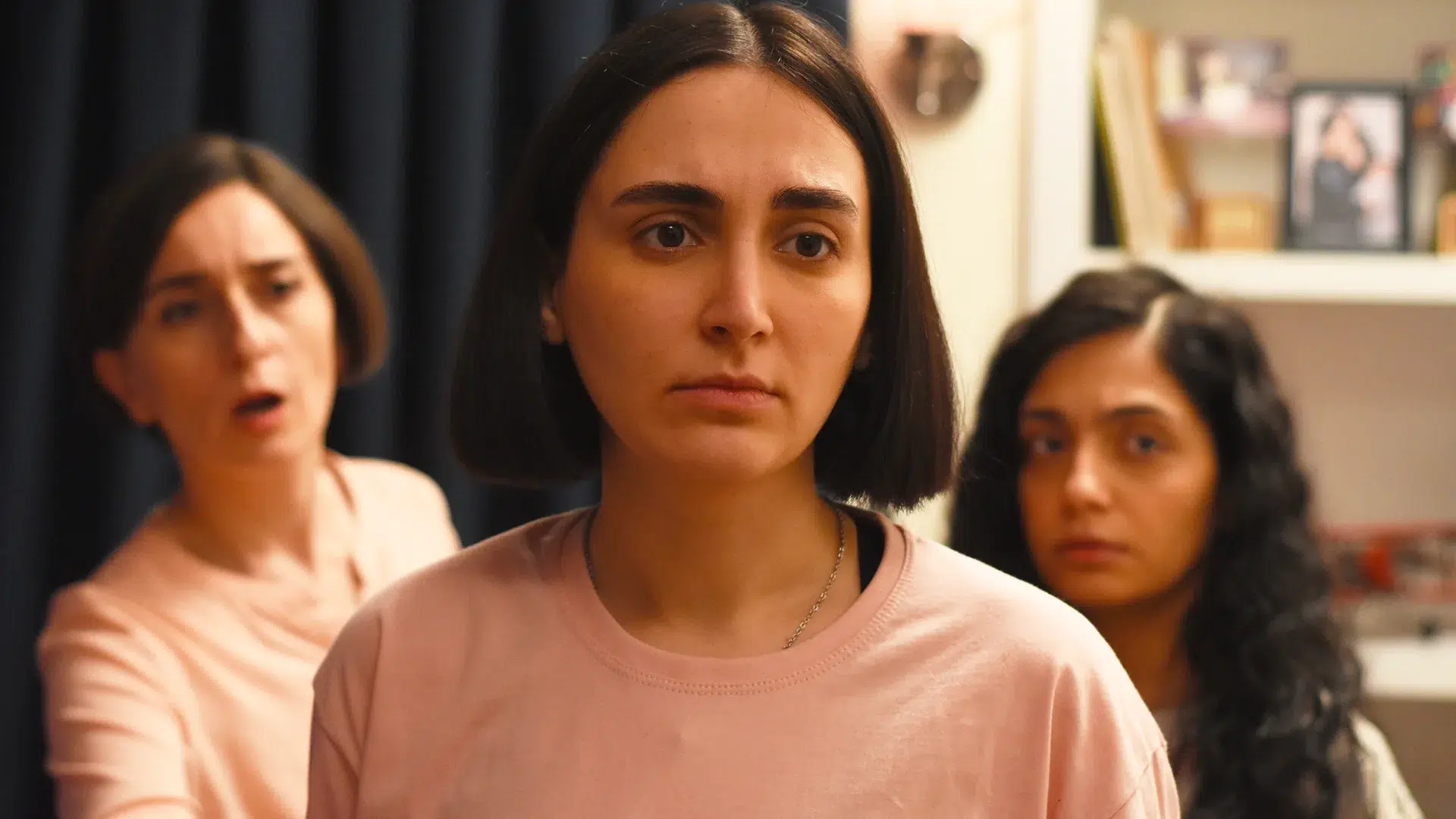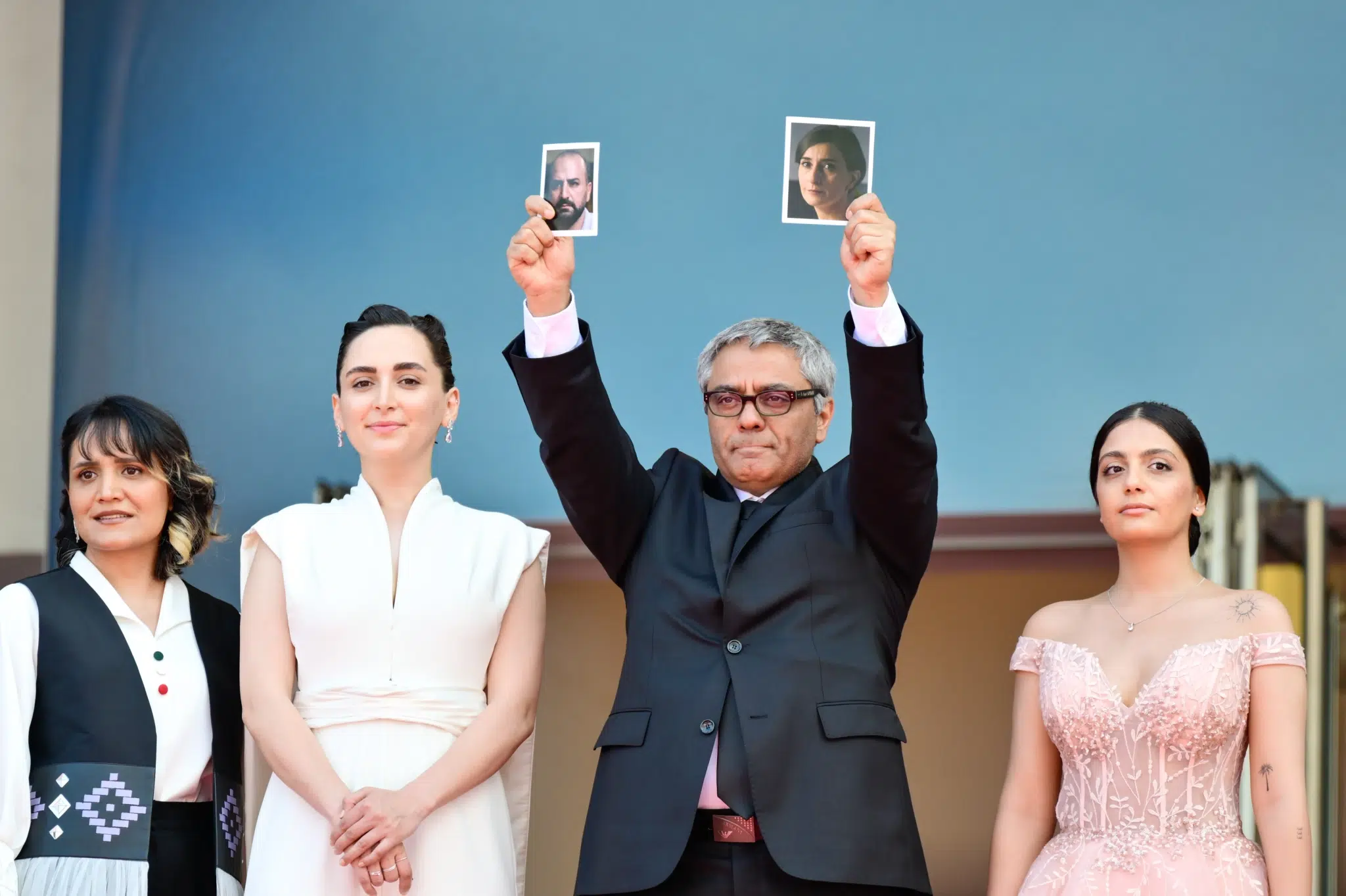
Mohammad Rasoulof’s latest is a thrilling portrait of an Iranian family caught up in a moment of volatile political rupture.
The Seed Of The Sacred Fig, the latest film from Iranian filmmaker Mohammad Rasoulof, has had a tumultuous journey, worthy of a film in itself. A vocal critic of the Iranian government, Rasoulof was sentenced to eight years in prison and flogging when news broke of the film’s scheduled premiere at the 2024 Cannes Film Festival. Rasoulof and some members of the film’s crew managed to escape Iran into Europe. Completing the edit in Germany, he attended the premiere in Cannes, where it won a Special Prize.
The Seed Of The Sacred Fig skilfully weaves drama and thriller to offer a timely comment on the oppressive nature of theocracy and the paranoia it induces among the populace it governs. It also brings to the fore how patriarchy and prejudice can lie beneath a façade of open-mindedness and tolerance. Iman (Missagh Zareh), a lawyer, is promoted to the role of an investigative judge in Tehran. To the delight of his wife Najmeh (Soheila Golestani) and college-age daughters Rezvan (Mahsa Rostami) and Sana (Setareh Maleki), he gets a pay rise and is provided with accommodation. However, an unpleasant part of his new job involves signing death approvals of convicts as young as 14. He also gets a pistol for self-defence, as he would understandably become a target for the regime’s irate victims. The pistol goes missing and becomes the film’s McGuffin, driving its plot. The disappearance of a service pistol is not new in cinema, the strand being deployed most memorably in Akira Kurosawa’s Stray Dog (1949). However, Rasoulof escapes genre confines by rooting it in drama of a highly realist vein and setting it against the backdrop of nationwide protests sparked by the custodial death of Mahsa Amini in 2022.
Complex character motivations, brilliantly embodied by the actors, bring to light the psychological conditioning ingrained within Iranian society and the pushback against such conditioning. The nature of his job evokes Iman’s guilty conscience and makes him a sympathetic figure, yet his criticism of protests by women demanding liberty reeks of patriarchal privilege. It is pre-emptive of the paranoia that will grip him when he suspects his own family of hiding the gun and has them interrogated. Najmeh is pragmatic, doing all in her role as wife and mother to safeguard her family. She warns her daughters to steer clear of trouble, always wear their headscarves and avoid problematic friends. However, when Rezvan’s friend Sadaf (Niousha Akhshi) gets shot in the face after getting caught up in an anti-hijab protest, Najmeh administers first aid in a deeply uncomfortable scene, her face betraying horror at the extent of the damage done by the regime to Sadaf and several others to maintain the status-quo.

Mohammad Rasoulof and cast members at the Cannes premiere of The Seed of The Sacred Fig. Rasoulof is holding pictures of cast members Soheila Golestani and Missagh Zareh, both of who are currently unable to leave Iran.
Rezvan and Sana represent the dissenting line of thought, aghast at the establishment’s brutality and at their parents’ insensitive complacency. They keep abreast by regularly viewing actual Instagram reels of the protests. The stylistic shifts from widescreen to vertical, reel-style aspect ratios viscerally drive home the nature of modern life dominated by social media. “Ignorance is bliss” is a quote relegated to the past. Harsh political realities are now inescapable. The livestreaming of ongoing Israeli atrocities in Gaza by young reporters on ground best exemplifies this. This empowers a younger generation of people by giving them an informed picture of events they wouldn’t otherwise get from television news— a fact highlighted by the film, leading to an ideological dinner-table showdown between Rezvan and her parents.
Throughout the film, Rasoulof focuses on hands to convey emotional states. Cinematographer Pooyan Aghababei has the camera positioned tight on the characters’ hands while performing significant actions—Iman’s firm hand gives his new gun to Najmeh, whose hands tremble upon gripping it, reflecting her trepidation at the violence it suggests. Najmeh cleaning her blood-stained hands in the sink after treating Sadaf symbolises her washing her hands off of Iran’s political realities and solidifying her pragmatism. Iman’s friend represents the regime in one harrowing scene, when he interrogates Najmeh and the girls to ascertain the missing gun’s whereabouts. “Can you see my hand,” he asks a blindfolded Sana, pointing to the abstract yet terrifying nature of the State dealing with the crackdowns.
The film’s climax culminates in car and foot chases against Iran’s picturesque rural landscape.. However, the spectacle of these brio-filled set pieces is rendered secondary to the grave motivations fuelling them. It is supreme testament to the skill of Rasoulof and his team in painting an organic portrait of a family caught up in a moment of volatile political rupture, wherein a new generation is standing up to years of oppression committed in the name of religion.





